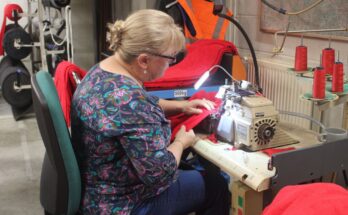Personal development is a multi-million dollar windfall. An industry that moves 48.4 billion dollars in the world, according to the analysis by Grand View Research with data up to 2024. Around 42,000 million euros at the current exchange rate. And its growth is unstoppable. Both this market analyst firm and Data Bridge Market Research estimate annual increases of more than 5% between now and 2030 or 2031 (up to $67.21 billion and $69.57 billion, respectively). The business covers a wide range of resources and, of course, companies, from books to mobile applications, training platforms, all kinds of training programs, trainmental health, awarenessskill improvement and a long list of self-help tools. Demand has skyrocketed to the point that Data Bridge sees saturation as a major risk.
As awareness of the importance of mental health increases around the world (just as time off work due to stress or anxiety increases), more people are seeking resources to encourage self-care and improve well-being. A need to which organizations are also responding with an increase in corporate investments, largely exploited by the advancement of new technologies and artificial intelligence.
“Society is looking for solutions that go beyond purely academic ones. There are those who believe that reading a book is enough and others want more. We are in a truly growing business: from five-minute training on YouTube to incredibly complete programs to develop personal skills”, says Jaime Lladó, general director of Dale Carnegie in Spain, one of the leading companies in the sector (according to the Grand View and Data Bridge reports), who estimates that the turnover in our country is close to 1,000 million euros per year.
“The mental health field isn’t doing too badly when it comes to generating resources to support people who aren’t having fun. But what it doesn’t do well at all is teaching mental health protocols that can avoid widespread problems like stress. Strengthening and personal development are covered by the private sector,” says Gustavo Díez, director of the Nirakara Research and Training Institute for Emotional, Physical and Mental Wellbeing. “There is a very abundant offer because it is clear that there is a need. And after the pandemic, personal development has also been introduced in the professional field. Many companies are starting to see it as a fundamental tool for retaining talent, especially among the new generations, who request it”, he adds.
In an increasingly automated world, Díez predicts that the demand for self-help will continue to increase. This is demonstrated by the increase in scientific research on lifestyles (nutrition, physical exercise, sleep, stress…), where prevention becomes more important, which will then also reach the streets, he explains.
Although not all that glitters is gold. Protected by the unstoppable growth of the business, many charlatans and scammers have also emerged who disguise usually obvious advice with an aura of psychology. It happens in books, on social networks, train or the courses.
“The barriers to entry into training are very low and there are many high-impact phrases and many motivational videos,” recognizes Jesús Araújo, general manager of Cegos in Spain, where 70% of training programs are aimed at the area of personal development. “There is a lot of hype in this sector,” says Gustavo Díez, because “where there is profit, there are insufficiently trained people who take advantage of it and in the field of mental health it can be dangerous. There are also many proposals that are not based not on science but on logic, and many magical thoughts that harm people and make the sector lose credibility,” he adds. “Since it is relatively easy to give advice on social networks or get a course for 50 euros, the offer is very broad and there is a whole series of qualities. In one hundred years of history we have trained more than 9 million people in the world, especially in leadership skills”, claims the head of Dale Carnagie.
Digital learning
Learning platforms and train online are revolutionizing the personal development market, making it easier for more users to access them from anywhere in the world. THE influencers and opinion leaders in the sector exploit social networks to reach a wider audience, further stimulating online demand, although Araújo points out that, in companies, they are not used beyond 10%, at least in Spain. And while the skill development segment is growing the most for now, Grand View predicts that the self-knowledge segment will take over. Books, being cheaper, represent the most widespread format.
“Influencers and social networks encourage discussion and individual concentration. They invite us to the hook wheel. This is its downside. But the good thing is that they raise awareness about personal development,” says Lisa Bevill, director of the Center for Health and Wellbeing at IE University. The institution has integrated care of body, mind and soul in connection with neuroscience into all its training programs. “Both undergraduate and graduate courses include the topic of well-being in practice, because the way we take care of ourselves affects our effectiveness, leadership or teamwork.” Bevill believes that the hyperstimulation of the brain and the overload of the healthcare system are currently the drivers of growth in demand.



